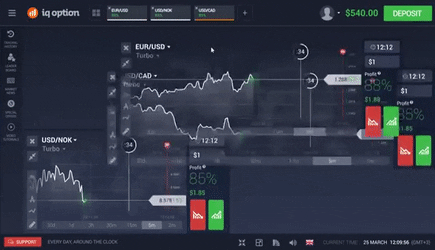Understanding Trade Settlement
The evolution of finance and commerce as a whole has pushed the world economies to a new high. With the advent of trading of financial instruments and multiplier effect into action, the monetary growth has been multiple folds over the past few decades.
Let’s get deeper into what exactly is trade settlement and how does it function. Trade settlement is a transaction method wherein the securities in trade are transferred into the buyer’s account and the monetary value of the security is deposited into the seller’s account post a trade execution.
The securities traded are financial like bonds, stock futures, or other financial instruments of value. The date when an order is placed is known as trade day whereas the transferring of security and cash takes place on the settlement day.
The trade settlement in the trade life cycle process is a part of a bigger whole which we call the trade settlement period.
The trade settlement period incorporates the whole time taken to complete the trade, starting from execution to settlement of the trade.
Types of Trade Settlement
During trading of financial securities, the time period for settlement of trades, trade capture is set as per the contract. The general time frame differs as per the types of securities. Equity securities are settled on T + 2 days, here ‘T’ is the trade date. Other securities such as commodities, currencies, or derivatives are traded at the mark to market, the settlement for a mark to market is at T + 2 days.
The classification of Trade settlement can be done into 3 types:
- Normal/ Rolling Settlement
- Trade-to-Trade Settlement
- Auction
Rolling Settlement
In this type of trade settlement, securities are settled on successive dates based on the settlement period in the contract and the day when the trade was executed. So let’s take a trade contract period with T + 2 days settlement time, here if a trade is placed on Monday and another trade is placed on Tuesday, the trade on Monday will be settled on Wednesday and the trade executed on Tuesday will be settled on Thursday (successively).
This is different from the account settlement method wherein the trade executed within a given time period is all settled at once.
Trade-to-Trade Settlement
In the Asset allocation, Trade to Trade Settlement method, intraday trading in prohibited for securities falling in this segment.
In this type of settlement method, the trader is required to accept the delivery of the security when bought and provide the monetary value, while selling the trader has to deliver the securities and the monetary value of the same will be provided to the trader for the securities traded. In short, shares are traded only for delivery.
Auction
Any trade involves at least two parties to the transaction, in the trading of financial securities, on one side we have the buyer of the security on the other side we have the seller of the financial security. The auction takes place when the selling party of the transaction or trade fails to deliver within the given time period on the agreement of selling the security for the said or agreed upon the monetary value of the security. It’s a kind of penalty for the investor’s carelessness while trading.
In this case of failure the broker of the selling party will try to purchase the security in a buy-in-auction market, the sum of the auction price along with the penalty and brokerage charges has to be paid by the defaulter (the selling party). The settlement of the action is done on T+3 days given the broker tries and purchases the share in the auction market on T + 2 days.











